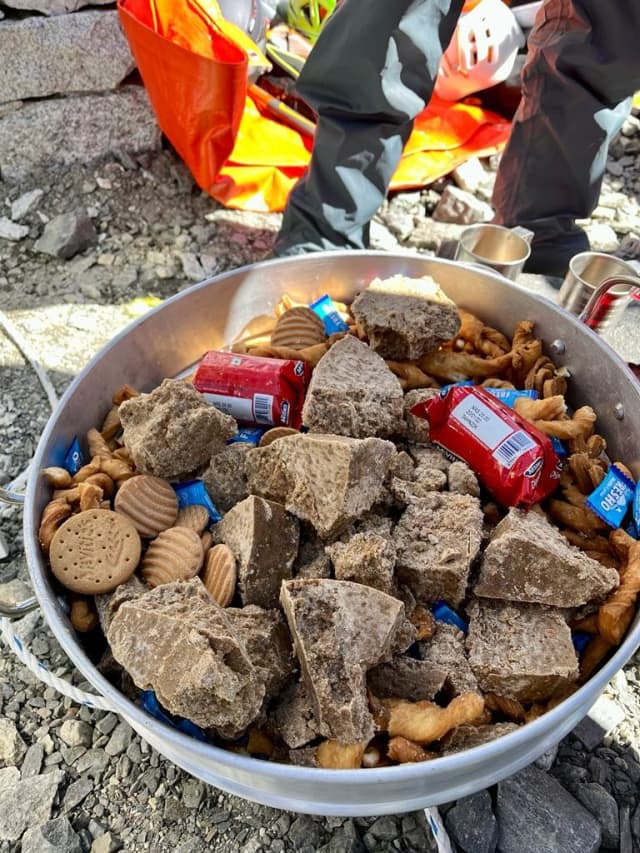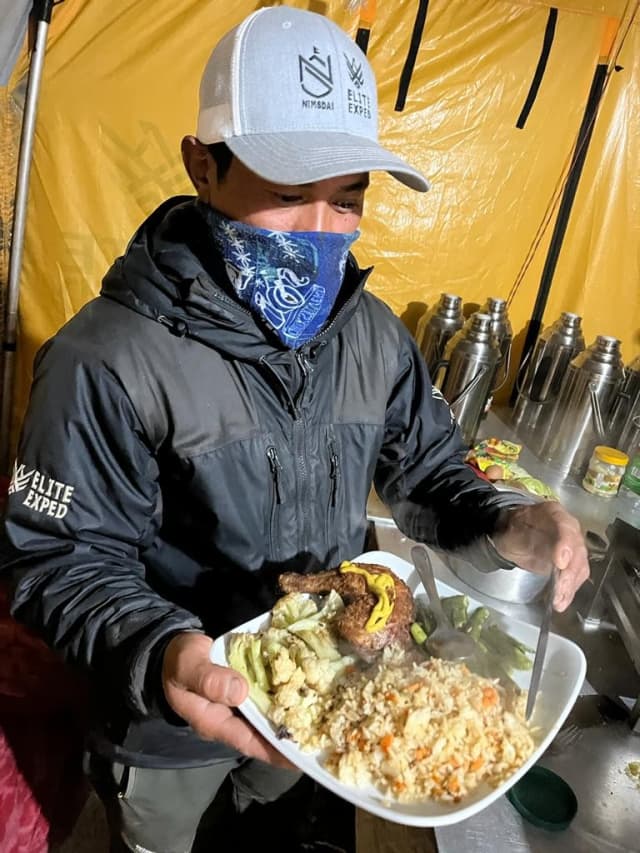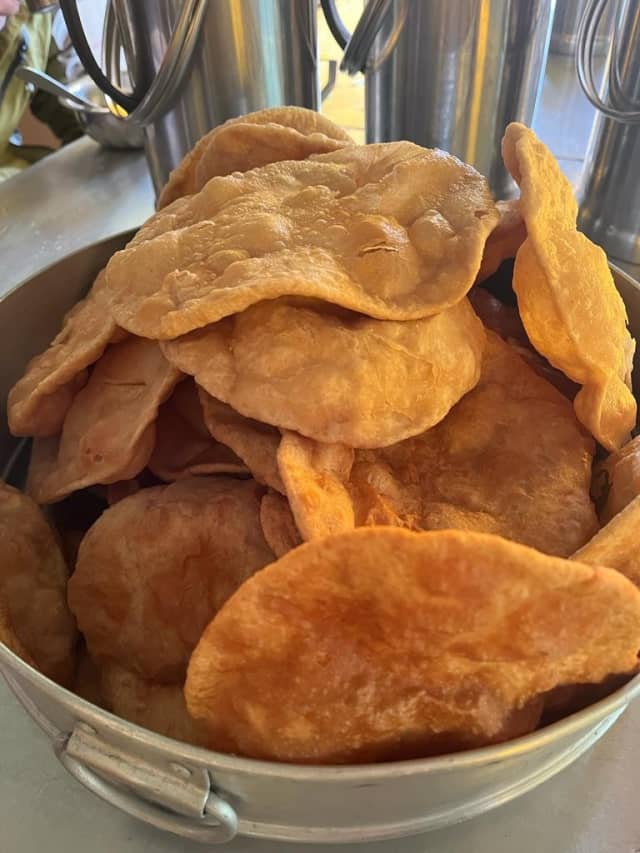From altitude sickness to infinite tiny issues, many things can stop expeditions in the extremes of Mount Everest. Without the right energy you cannot move on. “I forced myself to eat as much as I could at EBC, camp 1 and camp 2 but by camp 3 it was almost impossible to eat well. At camp 3 boiling water became harder, taking maybe 45 minutes for one pot and at that height, 7000m, taste and smell are reduced almost to nothing and all the body’s processes are slowing down. Loading the body with high fat, high carb, calorie-rich food before that point is absolutely essential.”
Sabrina’s experience of reaching the Everest summit is still very raw and her thoughts are all full, still linking to her life before that point.
“Back at home I don’t have rest days, I’m always on the go, doing something. On Everest it is absolutely essential to take rest days, whole rest days, just eating and allowing the body to absorb the nutrients, even when not hungry, which is difficult when everything is working so slowly. I felt so lazy, like a pig, just lying down and eating but it had to be that way. It really requires so much patience.” Sabrina spent 50 days at EBC as part of acclimatisation. "Getting this wrong can end an expedition. A simple lack of calories is enough to stop someone reaching the summit.”
Food isn’t the only issue, of course. Everest is complex, climbing it is not a normal task.
“Covid also had an unexpected effect on EBC, with people having to stay in tents together. Coughs are prevalent, the Khumbu cough is a real thing because it’s so cold. Things spread quickly at Base Camp so last year 70% of expeditions ended up being cancelled because Covid took hold and the Sherpas were unwell too. This year this has not been a problem at all.”
With Covid dealt with, just the normal challenges of climbing an 8000er remain.
“Up there everything is in slow motion. Between camps 3 and 4, if you’re not using oxygen, the slowness is indescribable. It slows again and again until the point where you are barely moving. The brain can no longer make lucid decisions. All of this begins with nutrition and hydration, such basic needs."

“Above camp 3 there is no margin of error to make poor decisions. Up there you do not lose just toes, you lose your life! The difference between making a decision in the right moment and making it one minute late, brings the ultimate consequence and this is just one reason why we can say the Sherpas are the heroes of Everest. We trust them with our lives and they don’t let us down.”
Sabrina has spoken a lot about the Sherpa community and has the utmost respect for them and their way of life. 500 years ago they migrated from Tibet, with their mountain culture remaining firmly with them. To be a Sherpa is not simply the performing of expected tasks, it is a birth rite, a line of heritage. No-one can become a Sherpa. Their skills are ingrained from birth and their place in history is very specific.
“The Sherpas save lives everyday during the expedition season, by doing small things such as asking the right questions at the right time or insisting we eat something or drink more. This is no joke. They keep on top of these basic things to keep people alive and their timing is impeccable.”
Looking at another of Sabrina’s many lives gives a totally different perspective on the use of food, “As a judo player you are very well prepared because of your gradually-building experience with making weight. We spend years training our body not just to be at the right weight but to do it while keeping our organs safe. We train our kidneys by practising, to need less water. To sweat off more than we drink in the final hours before a judo competition cannot be compared with the unknowns of climbing Everest.
In judo we train fuelled and then we restrict a little and keep training, albeit differently. We dehydrate a little sometimes and then we can weigh in, refuel and be back at the top of our game and this process is repeated and refined over many years.”
What we do know is that on Everest there is no uchi-komi, that is to say there is no build up of repeated practice. You can never fully prepare for the very first time, but in judo it is all about that practice and the accumulation of experience, including the way nutrition is treated.
“Also, in judo your coaches are very close by but on Everest they are climbing with you, right beside you. In judo my consequence is maybe an injury or missing the weight or losing a fight and with all that practice I still get a second chance if I make a mistake. On Everest if I wear the full feather down suit while climbing the Lhotse Face in the sun, I cannot stop to boil water and rehydrate; I will simply dehydrate and that can be catastrophic very quickly. No practice and massive consequences."
The biggest similarity I can draw between these sports is that the coaches and Sherpas are not responsible for my decisions. In each ‘game’ I must always be honest and true about my feeling and my condition. It is always my final decision to follow the coach or Sherpa’s advice and it is my decision to push forward or to rest. With all the experience and advice in the world I still see 100% of the responsibility as mine.”
Jigoro Kano said, “The purpose of the study of judo is to perfect yourself and to contribute to society.” Sabrina’s work towards this objective seems absolute, committing to each goal and project with her whole self and learning all she can along the way. She takes her personal education and feeds it into development work in Nepal and Bhutan, such as her work helping with the creation and development of Everest Judo Club, due to be inaugurated on Everest Day, 29th May.



